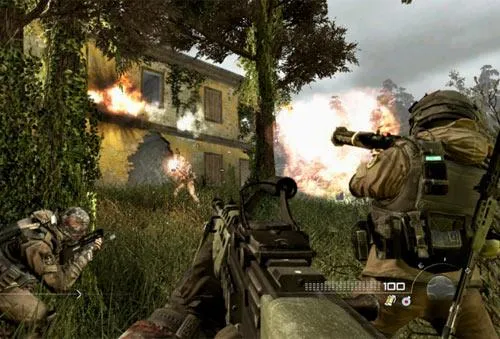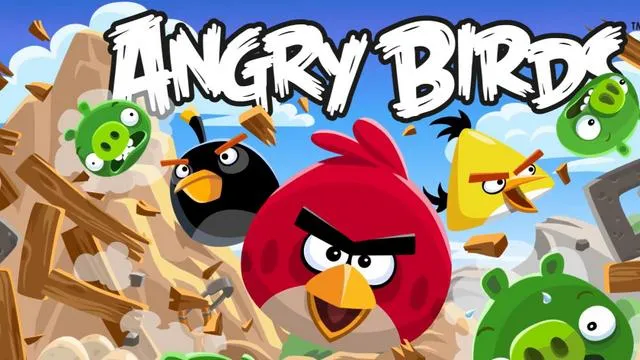Who says gaming is bad?
Here's your answer to all those who told you not to play those violent shooter games or hunt down killers on PlayStation and Xbox. On the contrary, research shows that playing video games may boost a range of cognitive skills like spatial navigation, reasoning, memory and perception. These skills would strengthen learning, health and social skills.

Teams of psychologists, clinicians and game designers should work together to develop approaches to mental health care that integrate video game playing with traditional therapy, researchers suggested based on the findings of several studies on the positive impact of gaming.
Violent games enhance learning more than puzzles
For decades, psychologists, sociologists and other health professionals have been arguing over the impact of video games, the violent ones in particular, on the psyche of youngsters. With more and more shoot-outs being reported and increasing crime, the debate has only been raging further. In the wake of all that, this research, which challenges many stereotypes, becomes even more important. The American Psychological Association is conducting a comprehensive review of the research on this subject, and will be publishing its findings in its journal soon.
According to several studies reviewed, playing video games, especially shooter video games that are often violent, may improve range of cognitive skills like spatial navigation, reasoning, memory and perception. APA review quotes a 2013 meta-analysis which found that playing shooter video games improved a player’s capacity to think about objects in three dimensions, just as well as academic courses to enhance these same skills. “This has critical implications for education and career development, as previous research has established the power of spatial skills for achievement in science, technology, engineering and mathematics,” lead author of the review Isabela Granic, PhD, of Radboud University Nijmegen in The Netherlands, said. Puzzles or role-playing games was not found to involve this enhanced thinking.
Granic, Adam Lobel and Rutger C. M. E. Engels of Radboud University Nijmegen summarised the research on the positive effects of playing video games, focusing on four main domains: cognitive, motivational, emotional and social, in an article. Clarifying that they are not suggesting that findings of decades of research on the negative effects of gaming should be ignored, they said: "However, to understand the impact of video games on children’s and adolescents’ development, a more balanced perspective is needed."
Angry Birds and World of Warcraft can help

Simple games like 'Angry Birds', which are easy to access and can be played quickly, can improve players’ moods, promote relaxation and ward off anxiety, the study said. “If playing video games simply makes people happier, this seems to be a fundamental emotional benefit to consider,” said Granic. Video games could be effective tools to learn resilience in the face of failure, as the gamers learn to cope with ongoing failures in games, the authors of the study pointed out. Emotional resilience is a key strength that would come handy in their everyday lives.The research questions the stereotype of the “socially isolated gamer”. The article points out that more than 70 percent of gamers play with a friend and millions of people worldwide participate in massive virtual worlds through video games such as 'Farmville' and 'World of Warcraft'.
“Multiplayer games become virtual social communities, where decisions need to be made quickly about whom to trust or reject and how to lead a group,” the authors said. A 2011 study quoted in the article found that those who play video games that encourage cooperation, even if they are violent games, are more likely to be helpful to others while gaming than those who play the same games competitively.
Work with clinicians, researchers tell game developers
According to a long-term study published in 2013, video games may also help children develop problem-solving skills.

Granic, Lobel and Engels said that the more adolescents reported playing strategic video games, such as role-playing games, the more they improved in problem solving and school grades the following year. Children’s creativity was also enhanced by playing any kind of video game, including violent games, but not when the children used other forms of technology, such as a computer or cell phone, other research revealed.Physicians have also begun to use video games to motivate patients to improve their health, the authors said. In the video game “Re-Mission,” child cancer patients can control a tiny robot that shoots cancer cells, overcomes bacterial infections and manages nausea and other barriers to adhering to treatments. A 2008 international study in 34 medical centers found significantly greater adherence to treatment and cancer-related knowledge among children who played “Re-Mission” compared to children who played a different computer game.
“It is this same kind of transformation, based on the foundational principle of play, that we suggest has the potential to transform the field of mental health,” Granic said. “This is especially true because engaging children and youth is one of the most challenging tasks clinicians face.”
Educators are redesigning classroom experiences, integrating video games, the authors pointed out. Citing examples, they recommended that teams of psychologists, clinicians and game designers should work together to develop approaches to mental health care that integrate video game playing with traditional therapy.







